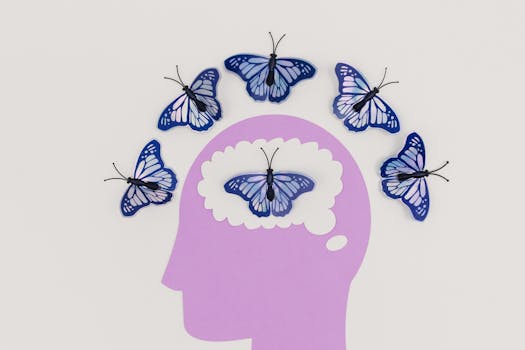What is cognitive psychology theories?

What is Cognitive Psychology Theories?
Cognitive psychology explores how we think, learn, remember, and perceive the world around us. It’s a fascinating field that delves into the inner workings of the mind and how these processes affect our daily lives. Understanding cognitive psychology theories is not just an academic pursuit; it can empower you to enhance productivity and foster personal development. By applying these theories, you can unlock new strategies for learning, decision-making, and self-improvement.
Foundational Concepts in Cognitive Psychology
Definition of Cognitive Psychology
Cognitive psychology is the branch of psychology that focuses on the study of mental processes. This includes how people think, learn, remember, and perceive information. Unlike behavioral psychology, which concentrates on observable behaviors, cognitive psychology digs deeper into the “why” and “how” behind these behaviors. It seeks to understand how individuals process information, which can shed light on everything from learning styles to problem-solving abilities. For a more in-depth look at this field, you can check out What Is the Cognitive Psychology Approach?.
Major Areas of Study
Cognitive psychology encompasses several major areas of study, which include:
- Perception: How we interpret sensory information from our environment.
- Memory: The processes involved in encoding, storing, and retrieving information.
- Language: How language is comprehended and produced.
- Problem-Solving: Strategies for finding solutions to complex problems.
- Decision-Making: The cognitive processes that influence how we make choices.
Each of these areas provides insight into the overall functioning of the human mind and informs various applications in education, therapy, and everyday life.
Key Theories in Cognitive Psychology
Information Processing Theory
One of the foundational theories in cognitive psychology is the Information Processing Theory. This theory likens the human mind to a computer, proposing that information goes through a series of processing stages: input, storage, and output. Just as a computer takes in data, processes it, and produces results, our brains work similarly. This perspective helps us understand how information is transformed from sensory input to a perceived reality, emphasizing the steps that lead to our understanding and actions.
Cognitive Development Theory
Jean Piaget’s Cognitive Development Theory highlights how children develop cognitive abilities in stages. Piaget proposed that children progress through four key stages:
- Sensorimotor Stage (0-2 years): Understanding the world through senses and actions.
- Preoperational Stage (2-7 years): Developing memory and imagination but lacking logical reasoning.
- Concrete Operational Stage (7-11 years): Gaining a better understanding of the world through logical thinking.
- Formal Operational Stage (12 years and up): Developing abstract reasoning and hypothetical thinking.
Understanding these stages can inform educational practices and developmental psychology, illustrating how cognitive abilities evolve over time. More about Piaget’s stages can be found in this article on Cognitive Theorists.
Schema Theory
Schema Theory posits that all knowledge is organized into mental structures called schemas. These schemas help us make sense of the vast amount of information we encounter daily. For example, you have a schema for “dog” that includes attributes like four legs, fur, and barking. When you encounter a new animal, your brain uses existing schemas to interpret this new information. This theory underscores the importance of prior knowledge in learning and cognition, illustrating how our experiences shape our understanding of the world. For a deeper dive into cognitive theories, see Cognitive Psychology Theories.
Application of Cognitive Psychology Theories
Enhancing Learning and Study Habits
Cognitive psychology theories have practical applications, especially in enhancing learning. Techniques derived from these theories include:
- Chunking: Breaking information into smaller, manageable units to improve retention.
- Visualization: Creating mental images to aid memory and understanding.
- Active Learning: Engaging with material through discussions, teaching others, or applying concepts in real-life scenarios.
By adopting these techniques, you can significantly improve your study habits and retention.
Time Management and Decision-Making
Understanding cognitive processes can also aid in better time management and decision-making. For example, recognizing cognitive biases—such as confirmation bias—can help you make more informed choices. Strategies like prioritizing tasks based on importance and using decision matrices can enhance productivity. By applying cognitive principles, you can streamline your decision-making process and manage your time more effectively.
Critiques and Limitations of Cognitive Psychology Theories
Neglect of Emotions in Cognitive Models
One criticism of some cognitive psychology theories is their tendency to overlook emotions. While cognitive models focus primarily on rational thought processes, they may fail to account for how emotions significantly impact decision-making and behavior. This can lead to an incomplete understanding of human psychology, as emotions are an integral part of the cognitive process.
Overemphasis on Rationality
Additionally, cognitive theories often assume that humans are entirely rational decision-makers. This assumption can be misleading, as people frequently make choices influenced by irrational factors, such as stress or emotional responses. Recognizing these limitations is crucial for a more holistic view of psychology and human behavior. For further exploration of these critiques, you can visit Critiques of Cognitive Psychology.
Conclusion: The Importance of Cognitive Psychology Theories
Cognitive psychology theories offer valuable insights into how we think and learn, providing tools for personal development and productivity. By understanding and applying these theories, you can enhance your learning techniques, improve decision-making, and better manage your time. As you explore the world of cognitive psychology, consider how these theories can be integrated into your own life to foster growth and efficiency. Whether you’re a student, professional, or lifelong learner, the principles of cognitive psychology can empower you to reach your full potential.